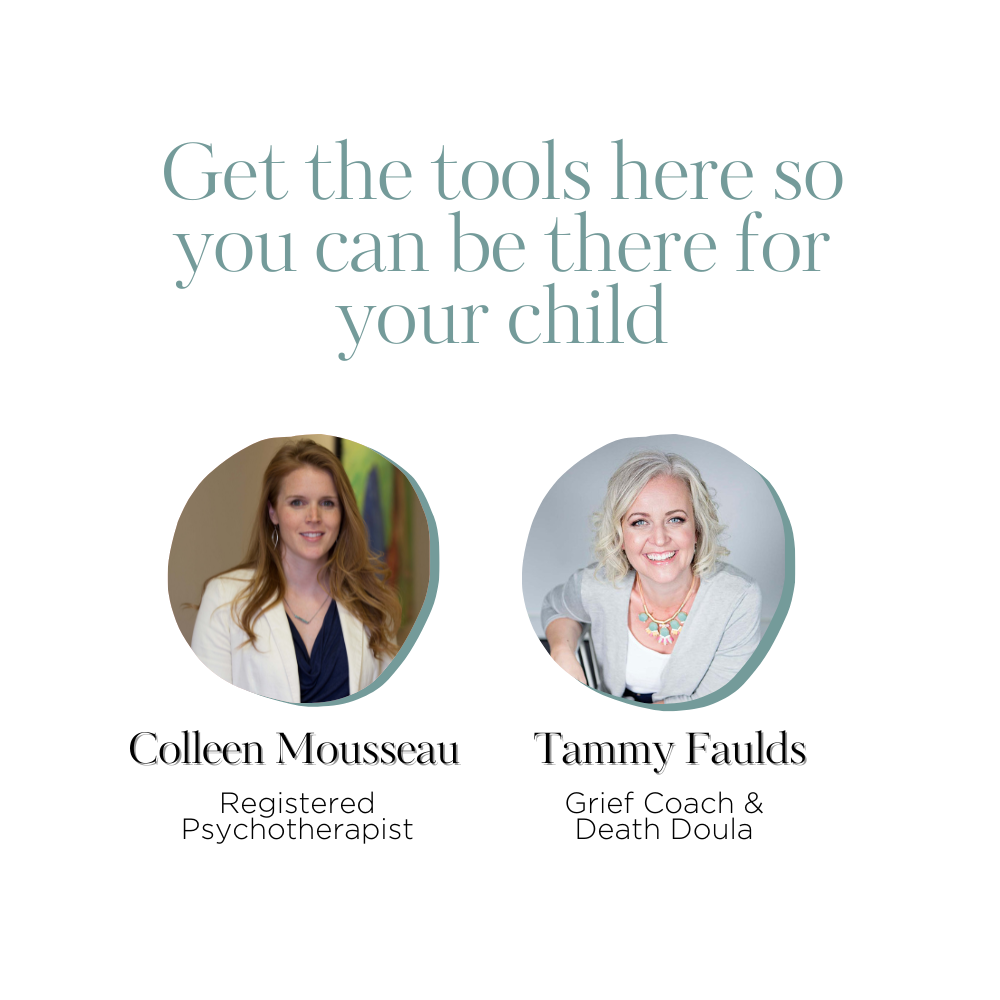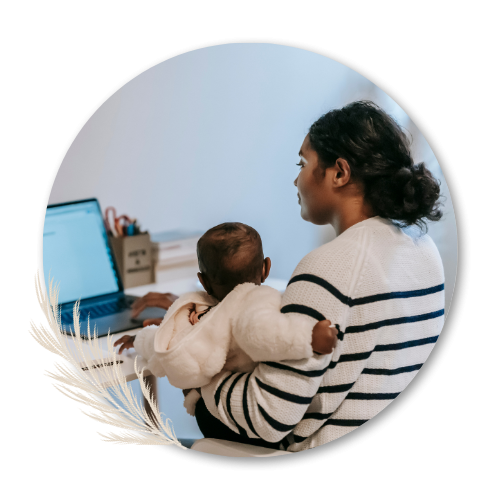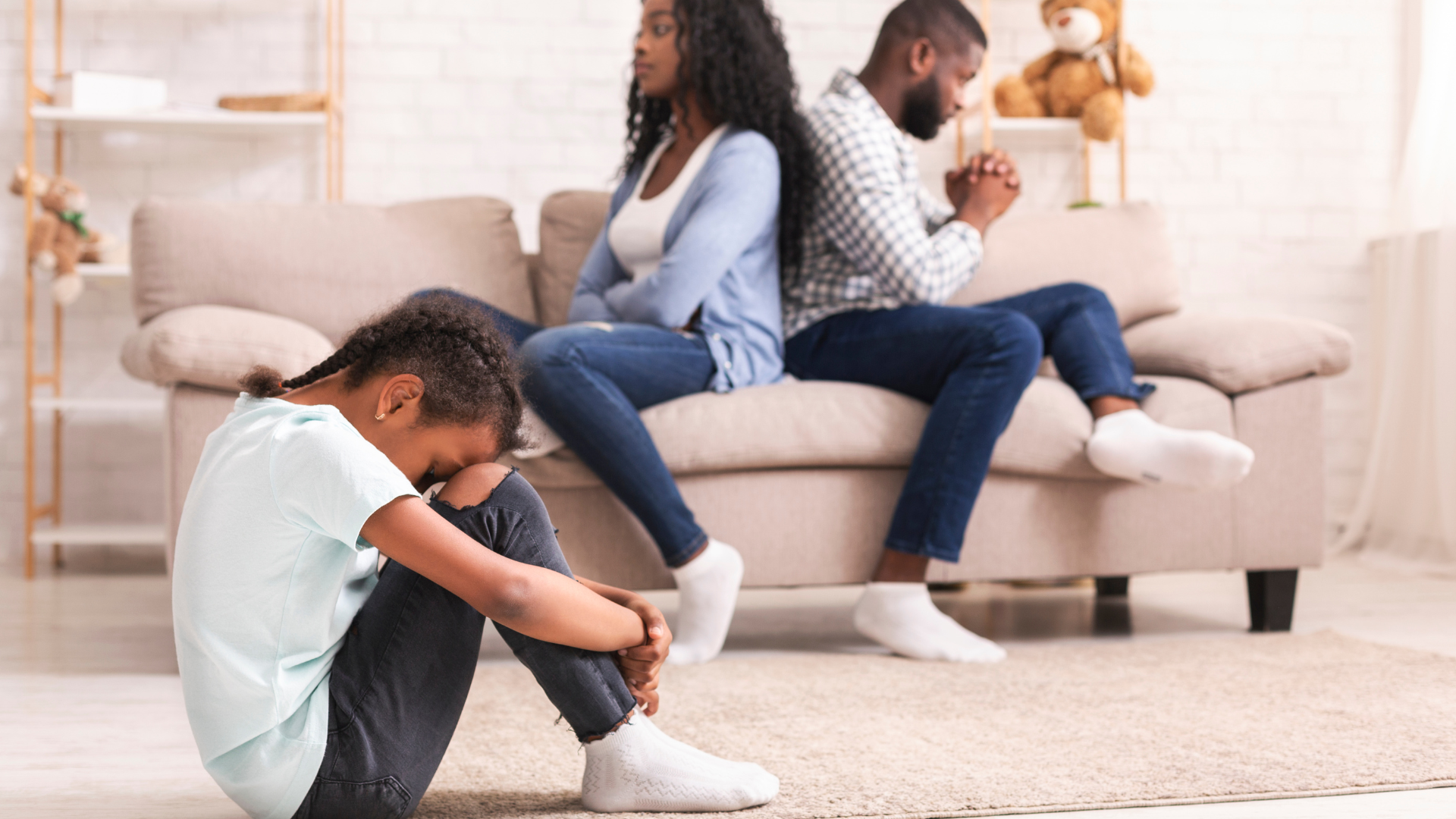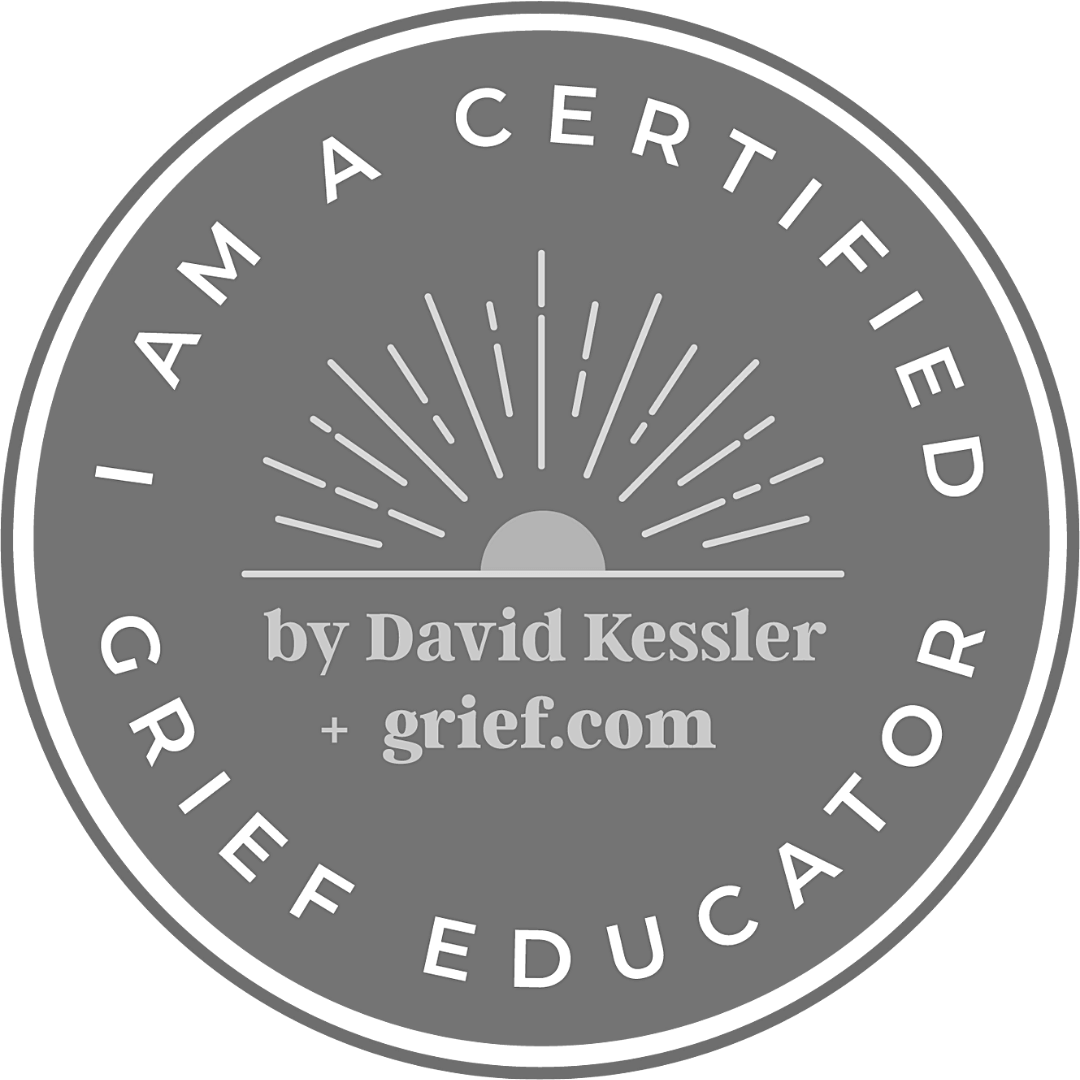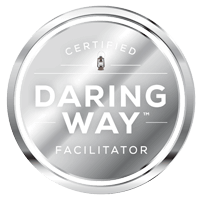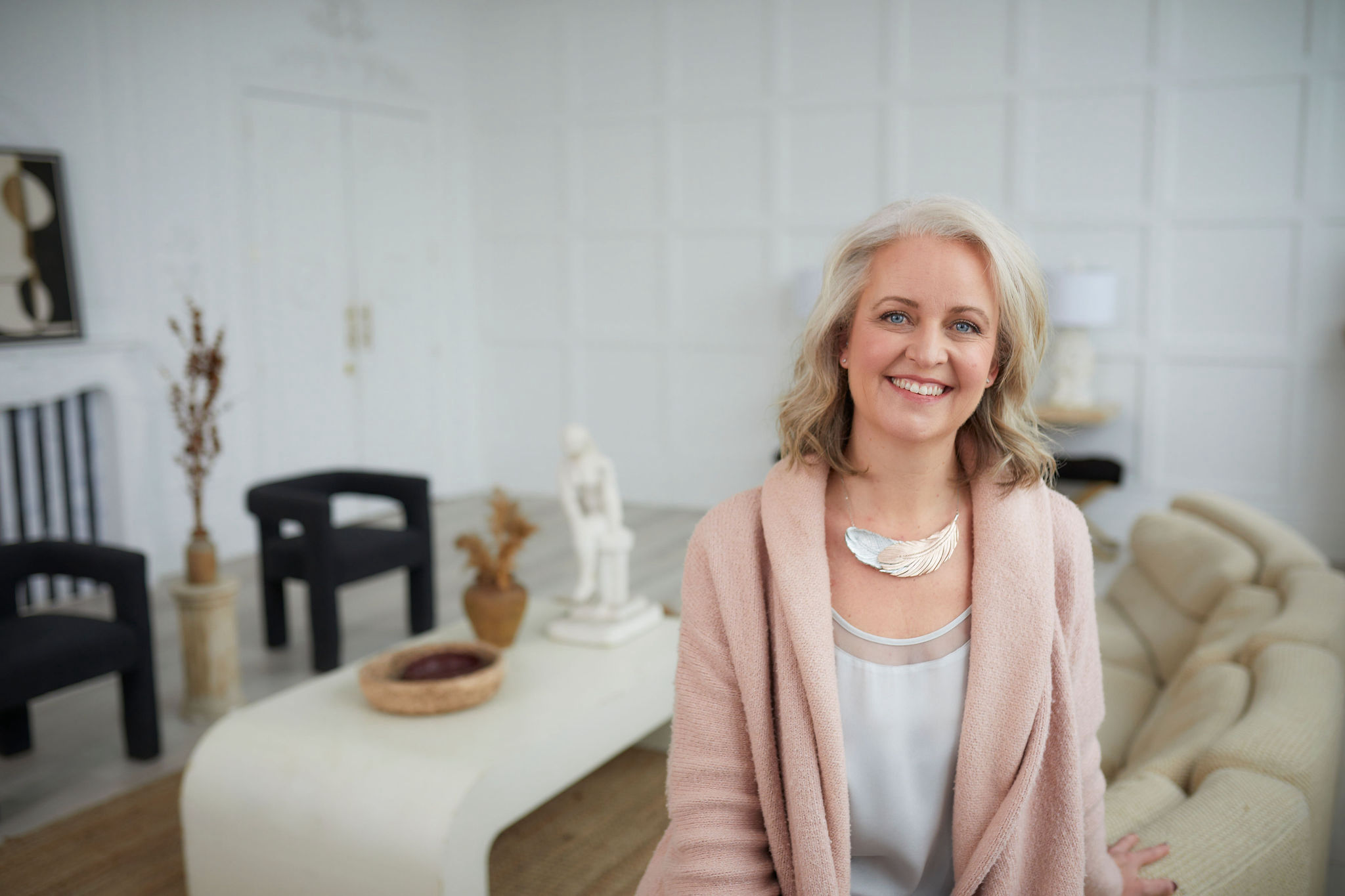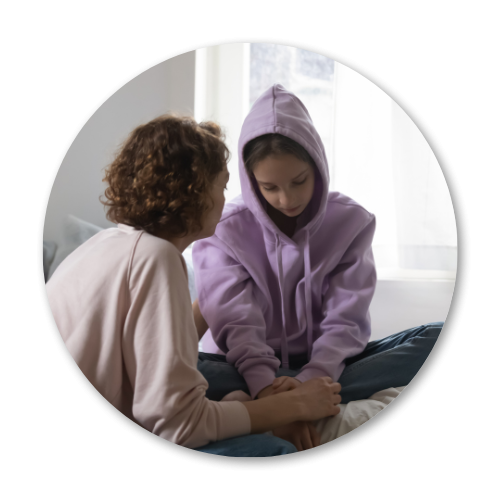
How do I talk to my kids about death and loss?
Explaining death and loss to your child can be challenging, especially when you’re feeling your own pain and uncertainty.
Naturally, the grieving process brings up a lot of questions for parents, such as:
- “Is it appropriate to bring a child to a funeral?”
- “At what age do children understand death?”
- “Do children process death differently than adults?”
- “Do teens process death differently than young children?”
- “How do I best support my child through the grieving process?”
INTRODUCING THE CHILDREN & GRIEF COURSE FOR PARENTS
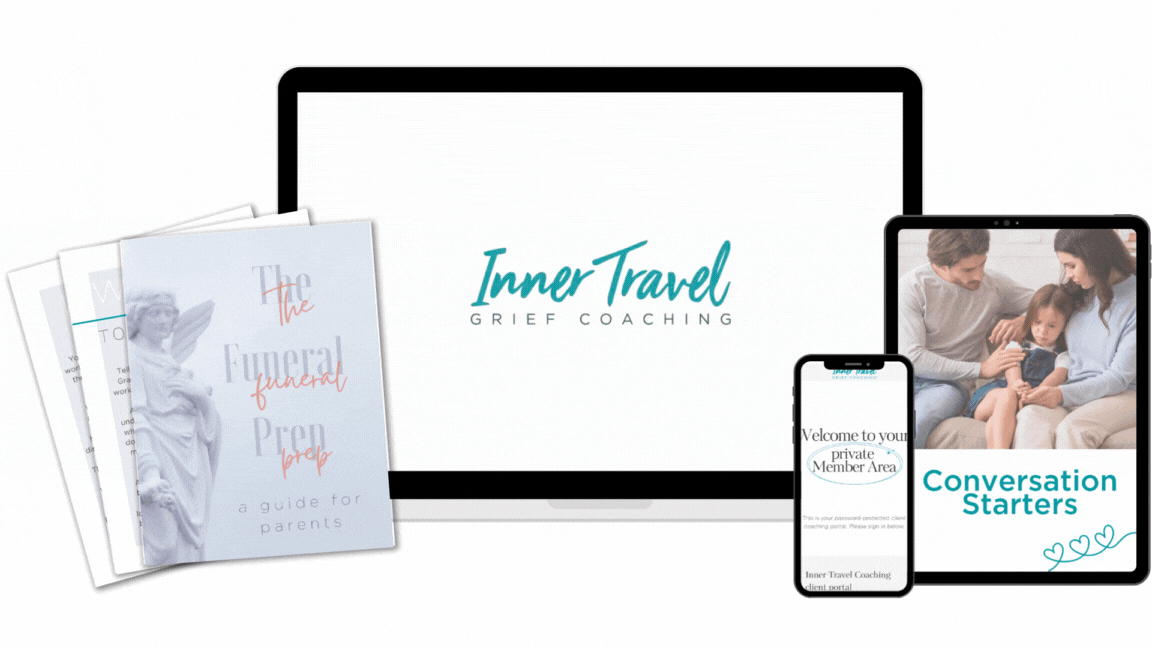
Skip The Mistake Most Parents Make
The most common mistake parents make with grieving children is not talking about death and loss.
It’s a natural instinct to shield your child from the ugly parts of life.
You don’t want to upset them or risk traumatizing them. You worry you might make them overly cautious or unnecessarily afraid as they move forward in their life.
Loss is a part of life and the only way to develop a healthy relationship with any loss is by learning how to talk about it.
Like so many other forms of parenting, nobody has ever trained you on how to guide your child through such a transformative milestone in their life.
In this course, you'll learn how to
HERE'S WHAT OTHER PARENTS ARE SAYING
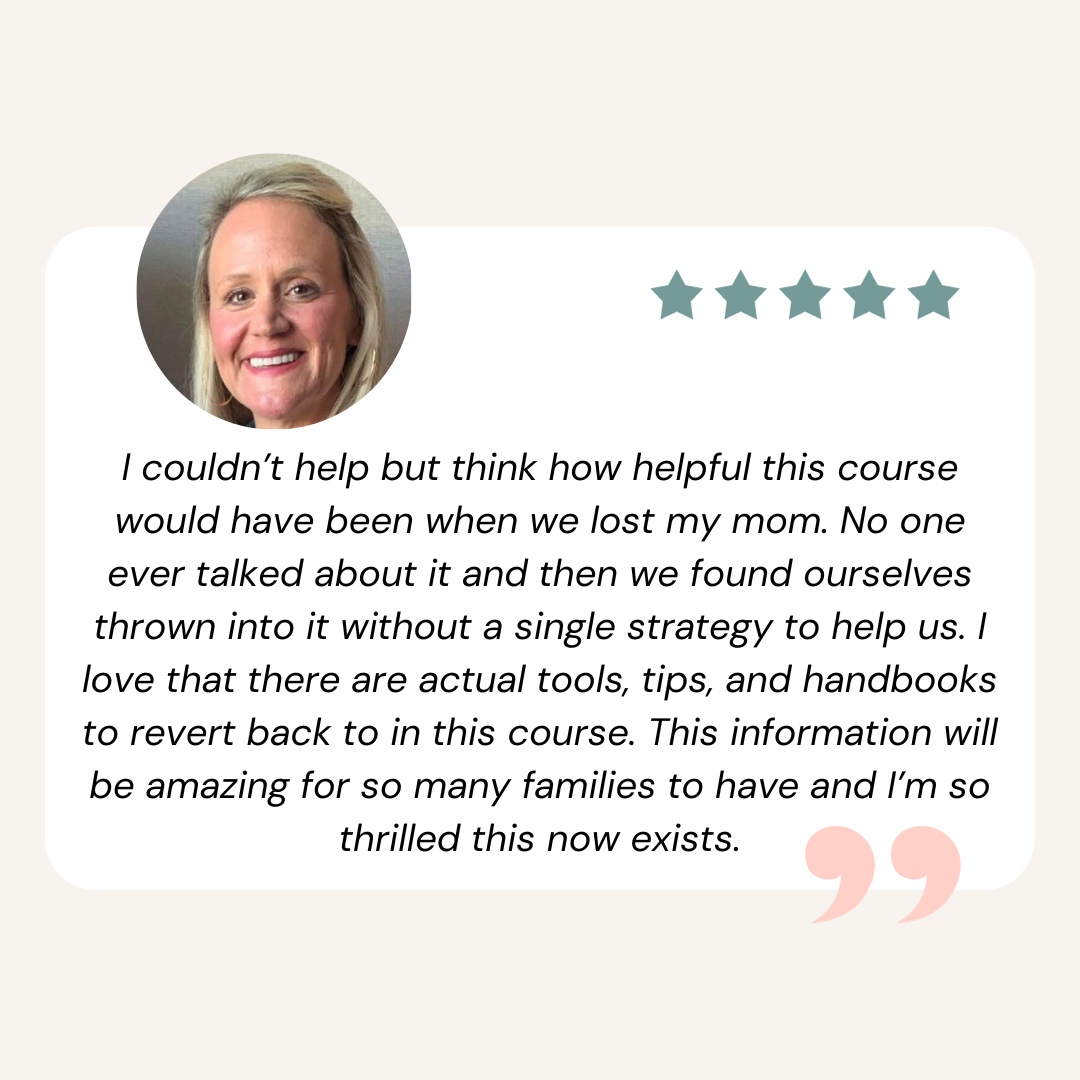
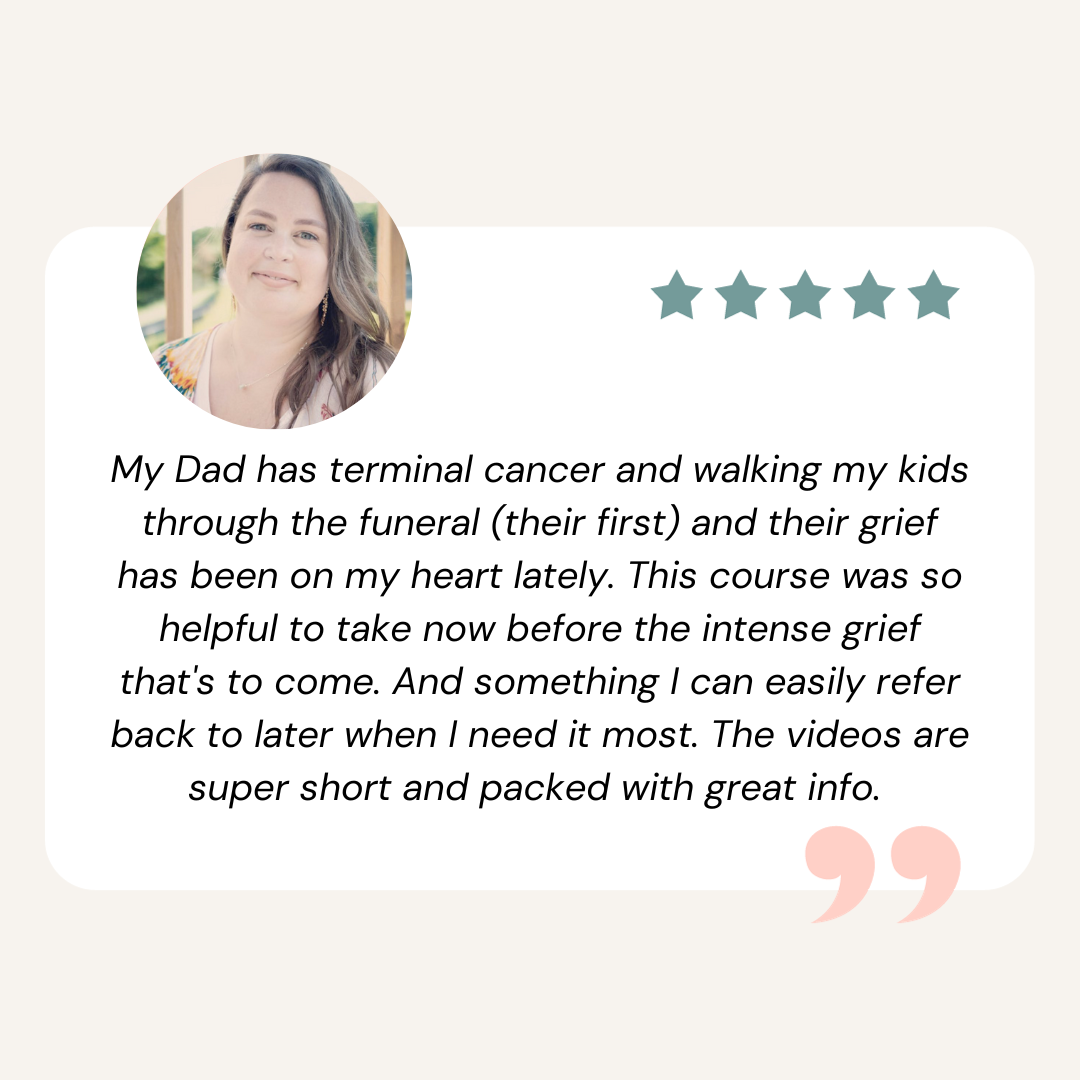
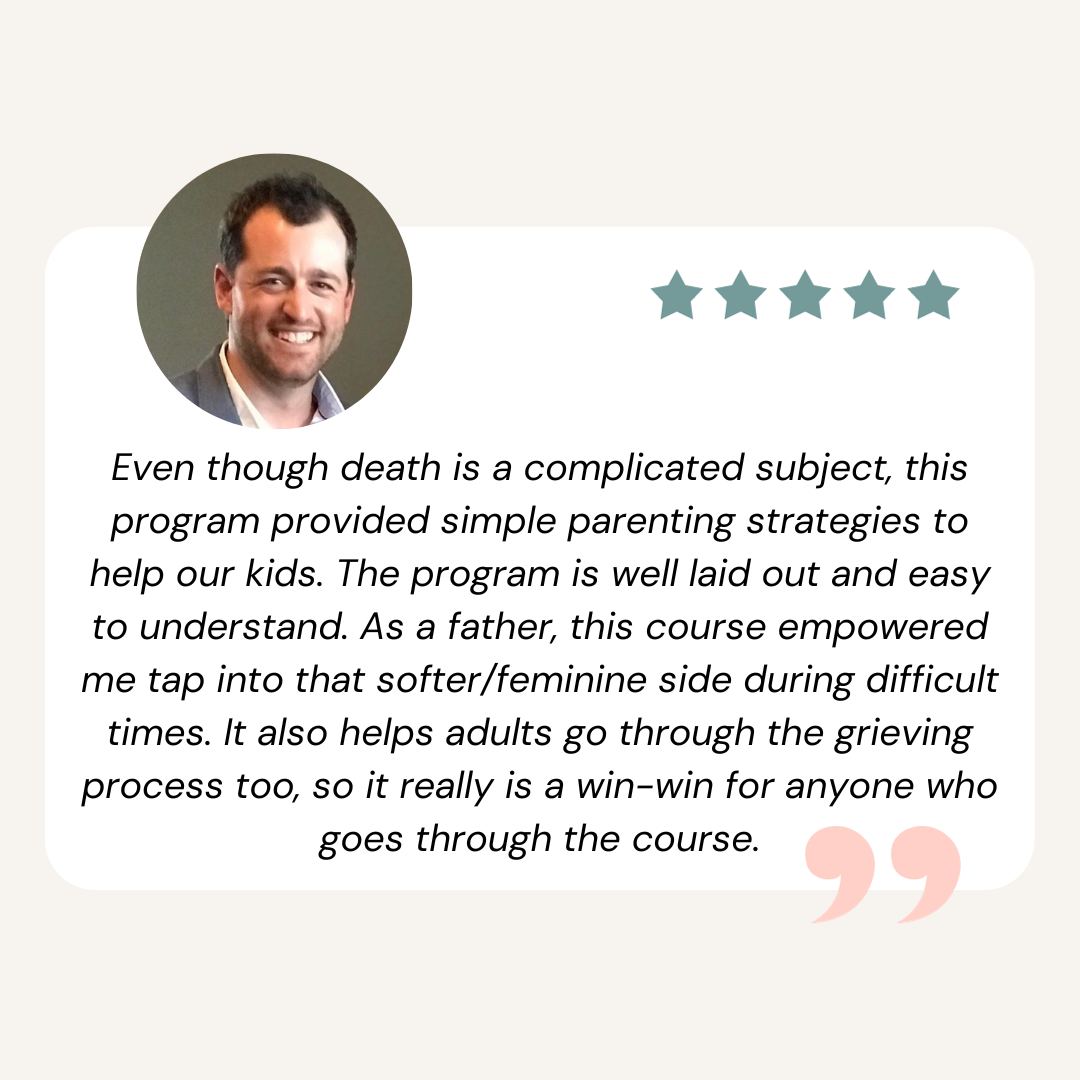
What's included in this course?
- Immediate access to the 5-step video course that you can access anytime, anywhere, so you can learn at your own pace.
- A mix of actionable exercises and resources that give you the structure and information you need when life feels especially messy and uncertain.
- Beautifully designed materials that will lovingly walk you through how to become a grief coach for your child.
- A streamlined approach - no extra fillers or distractions. We’ve made this course with as much intention and integrity as possible because life can be hard enough.
What's NOT included in this course?
- No Facebook group to join. We want you to have fewer distractions and get focused on helping your child, and yourself.
- No boring long-winded videos. Nope, each video is super focused and under 6 minutes long.
- A crazy amount of content you'll never get through. Many busy parents have completed this course in one sitting and were able to implement the strategies they learned right away.
- No online calls you have to stress over trying to attend, making you feel like you’re not getting your money’s worth. There’s nothing live to attend. This course is purposely designed to give you what you need to help your child through this emotional time.
LEARN HOW TO SUPPORT YOUR CHILD THROUGH GRIEF
This course is for you if:
- You’re unsure of how to start a discussion about death with your children.
- You need to prepare your children for an upcoming funeral.
- You’re worried you may traumatize your child with discussions of death.
- Discussing death and grief makes you nervous.
- You're ready to learn more about grief on your own time.
Start right now:
- Immediate access to the full 5-step short video course
- All materials and resources included
- Self-paced or follow along with the daily emails
$97 CAD
These supportive bonuses are all included, too:

Funeral Prep Guidebook
Your guide to understanding how kids think, what to tell them, and what they can do before and during the service.
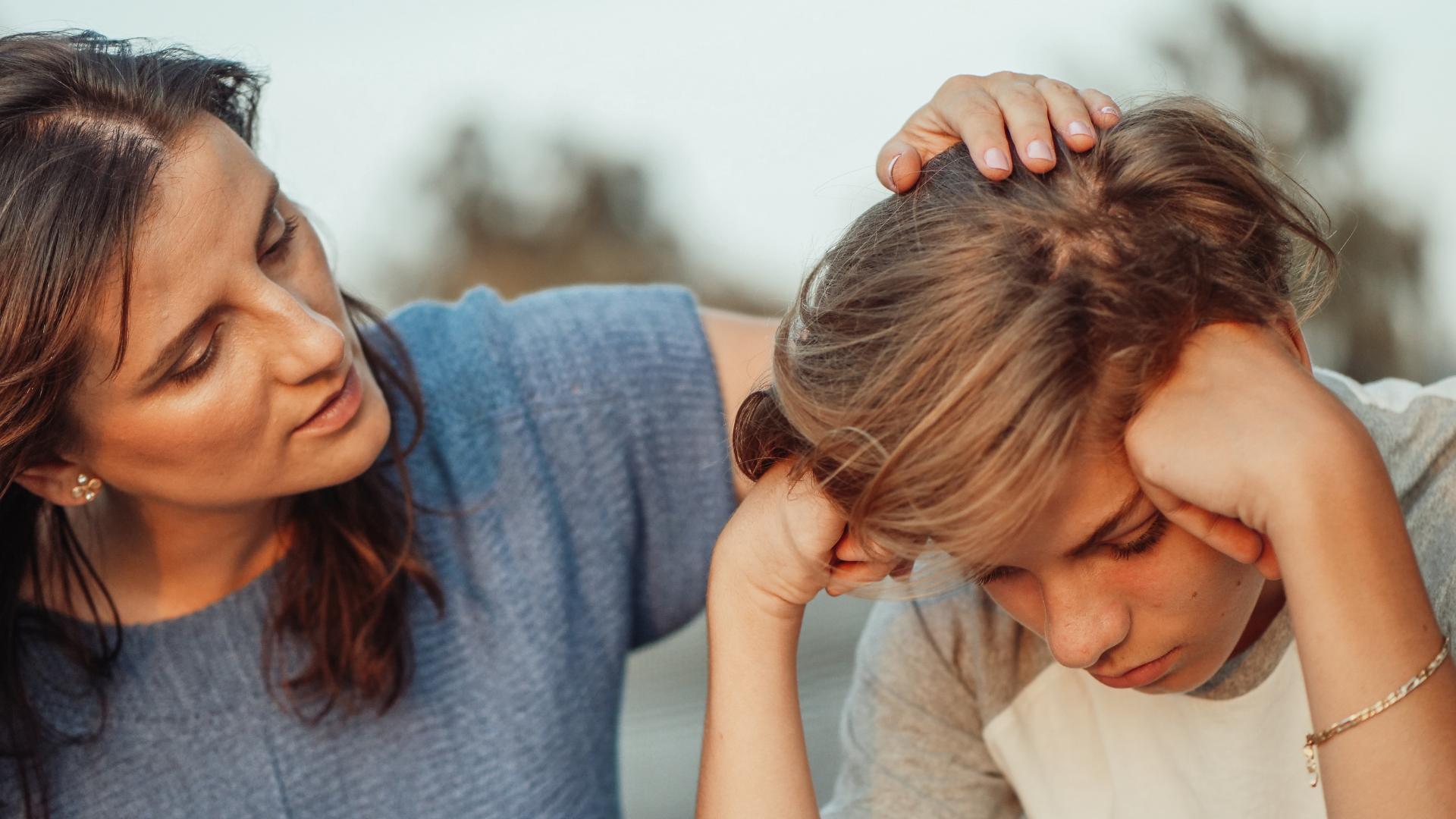
Conversation Starters Guidebook
Talking about grief with your children doesn't have to be daunting. With the right approach, it can be a healing journey for both you and your child. This guide, infused with warmth and expert insights, will empower you to navigate these conversations with confidence and care.
COMMONLY ASKED QUESTIONS
How long is this course? What if the funeral is tomorrow?
The course is self-paced, meaning you can do it as quickly or as slowly as you like. It’s set up to be delivered over five days with daily emails being sent out with an overview of the topic for that day. In each module, you’ll explore a new aspect of grief and learn a new technique for introducing it to your child. The goal is not to overwhelm you. So the course is paced out so that you’ll have time to absorb and implement what you learn.
If you have an immediate need for the lessons in the course, such as needing to immediately prepare for a funeral, simply click on that module and away you go. Or, as always, you can book a session directly with me by clicking here.
How is this different from grief counseling?
Typically, grief counseling is about working through your trauma — it is a type of therapy that can address the physical, emotional, social, spiritual, and cognitive responses to loss. This course focuses much more on helping your child work through grief, how to introduce the concept of loss and death, and to help you understand what they might be feeling during these difficult times.
In short, this course is not therapy although the benefits often feel therapeutic. It’s education coupled with proven techniques to help your child develop a healthy relationship with grief, death, and loss.
I'm scared of death myself, will this help me? Will I really be able to help my child?
Our goal is to equip you with the best possible knowledge and techniques so that you can help establish a healthy relationship with loss, death, and grief for your child. The course features advice and techniques developed by a registered psychotherapist (Colleen Mousseau) and professional grief coach (me, Tammy) to help you help your child but it also will benefit you.
I'm not sure I'm ready to dive in yet, where can I learn more?
You can explore my blog and YouTube channel for free advice and insights on all things grief, loss, and life. If you have a specific question about the course that hasn’t been answered here, you can reach out to me directly via hello[at]innertravelcoaching[dot]com.

Inner Travel Grief Coaching™ All rights reserved.


